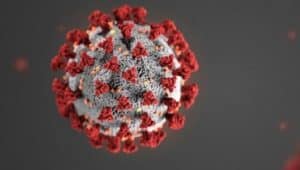
Single dose of COVID vaccine can cut transmissions in half
pharmafile | April 28, 2021 | News story | Research and Development | COVID-19, Public Health England, Vaccine
A Public Health England (PHE) study into the Pfizer-BioNTech and Oxford-AstraZeneca vaccines has found that a single dose of either jab can cut COVID-19 transmissions by up to half.
The study, which has yet to be fully peer-reviewed, included more than 57,000 people living in 24,000 households who were the contacts of a vaccinated person.
Data showed that people given a single dose of either the Pfizer-BioNTech or Oxford-AstraZeneca vaccines and became infected at least three weeks later, were between 38% and 49% less likely to pass the virus on to people living in their homes, compared with those who were unvaccinated.
Health Secretary, Matt Hancock, said: “This is terrific news – we already know vaccines save lives and this study is the most comprehensive real-world data showing they also cut transmission of this deadly virus.
“It further reinforces that vaccines are the best way out of this pandemic as they protect you and they may prevent you from unknowingly infecting someone in your household.
“I urge everybody to get their vaccines as soon as they are eligible and make sure you get your second dose for the strongest possible protection. This is a huge national effort and we will beat the virus together.”
Protection from COVID-19 was seen from about 14 days after vaccination, with similar levels regardless of a person’s age. The study added that this protection was on top of the reduced risk of a vaccinated person developing symptomatic infection in the first place, which is around 60 to 65% – four weeks after one dose of either vaccine.
Dr Mary Ramsay, head of immunisation at PHE, said: “Vaccines are vital in helping us return to a normal way of life. Not only do vaccines reduce the severity of illness and prevent hundreds of deaths every day, we now see they also have an additional impact on reducing the chance of passing COVID-19 on to others.”
Households have been identified as high-risk settings for transmission, meaning this study provides early evidence on the impact of vaccines in preventing onward transmission.
Similar results could therefore be expected in other settings with similar transmission risks, such as shared accommodation and prisons, the study stated.
Previous PHE studies have shown that both the Pfizer-BioNTech and Oxford-AstraZeneca vaccines are highly effective in reducing COVID-19 infections among older people, with 10,400 deaths prevented in over-60s by the end of March.
PHE is also undertaking separate studies on the effect of vaccination on transmission in the wider population.
A total of 33,843,580 people in the UK have now received at least one dose of vaccine and one in four adults are now fully vaccinated, according to the latest data.
Vaccination invitations were sent to 42-year-olds in England for the first time on Tuesday as the UK’s mass immunisation programme, one of the most successful in the world, continues to move down the age groups.
Kat Jenkins
Related Content

BioNet receives positive EMA opinion on new pertussis vaccine
BioNet has received a positive opinion from the Committee for Medicinal Products for Human Use …

Recipharm offers manufacturing support to vaccine trial from ImmBIO and iiCON
Recipharm, a contract development and manufacturing organisation (CDMO), has successfully manufactured PnuBioVax, a new protein-based …

COVID-19 vaccine eligibility creates challenges for UK pharmacies
Pharmacists across England have reported widespread confusion among patients attempting to book COVID-19 vaccination appointments …






